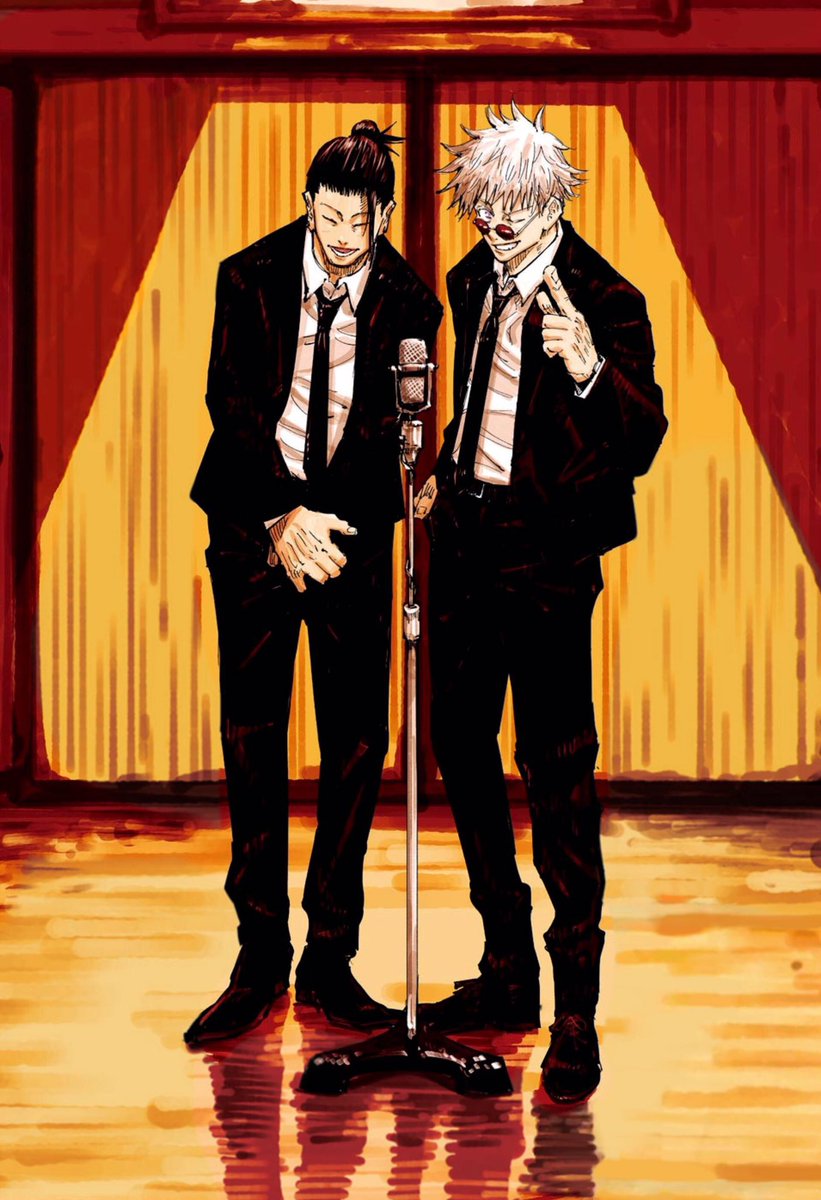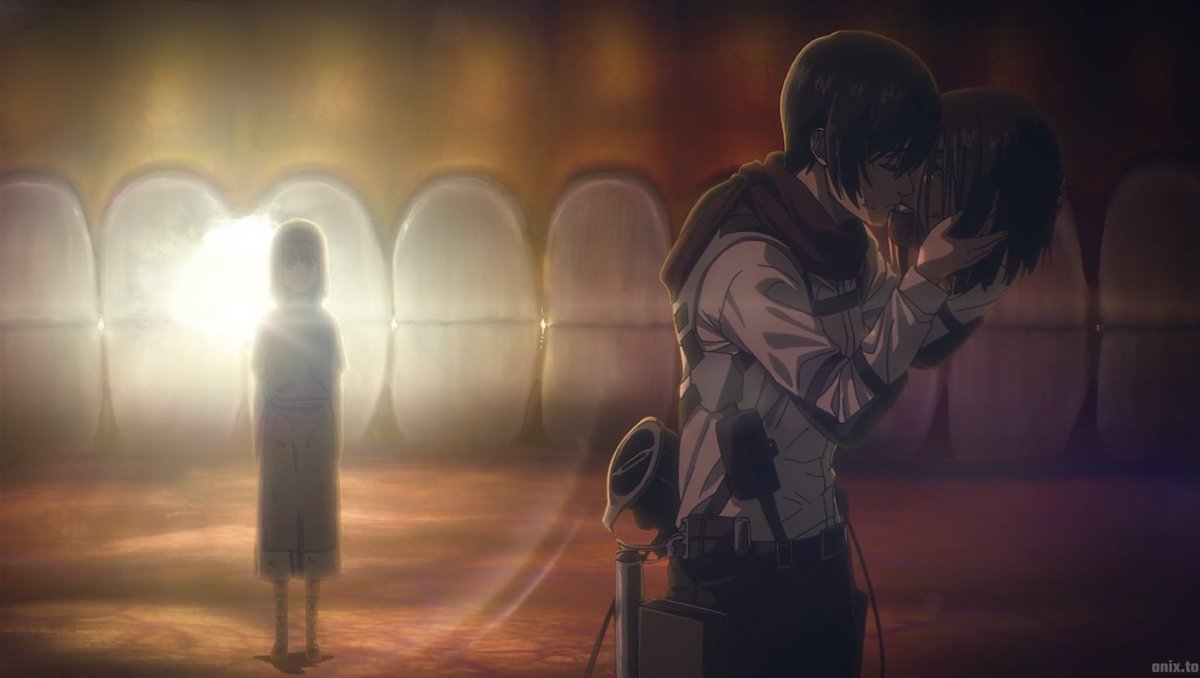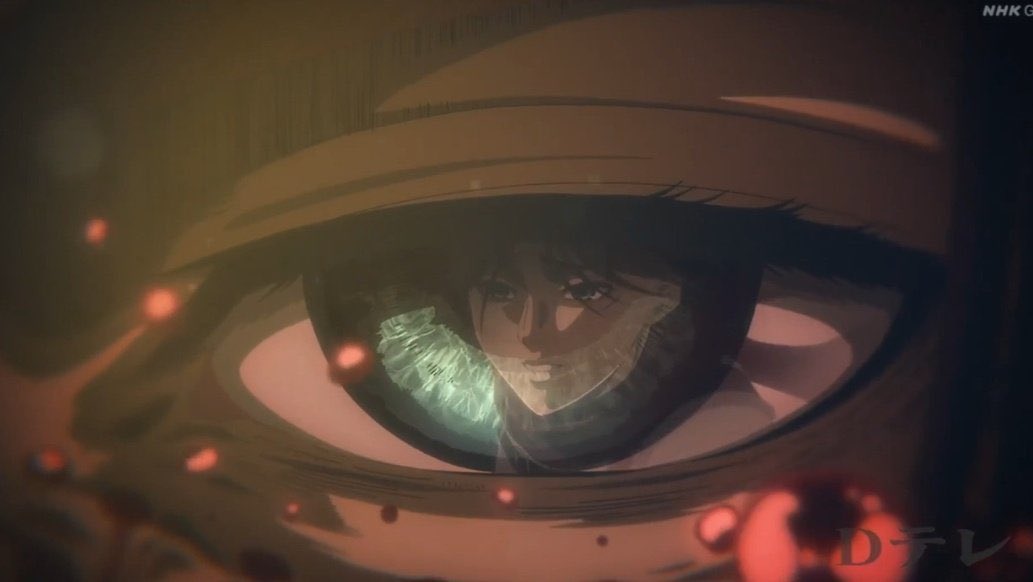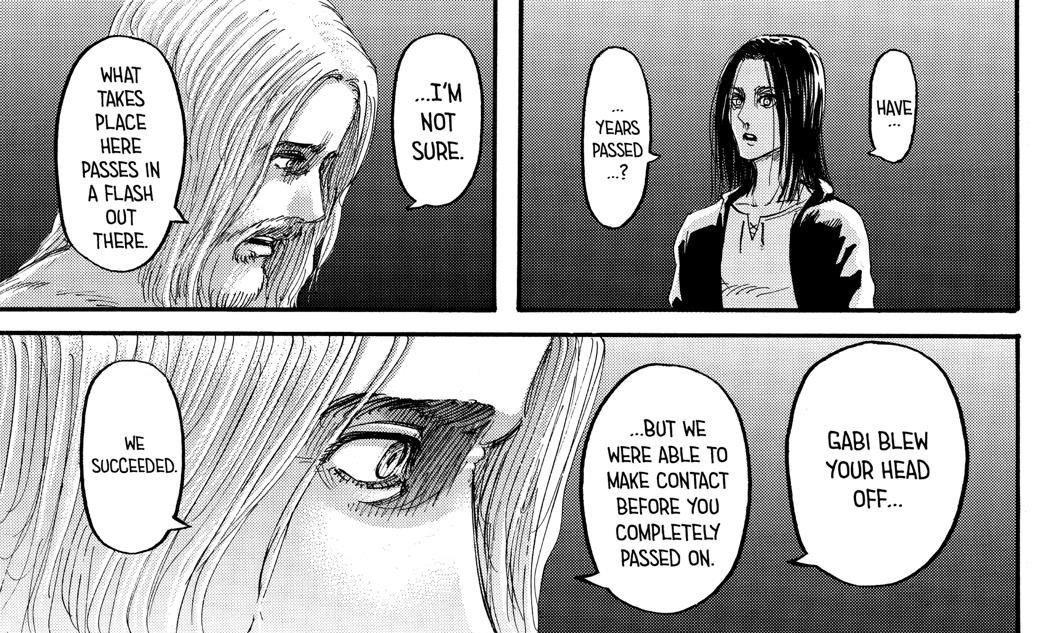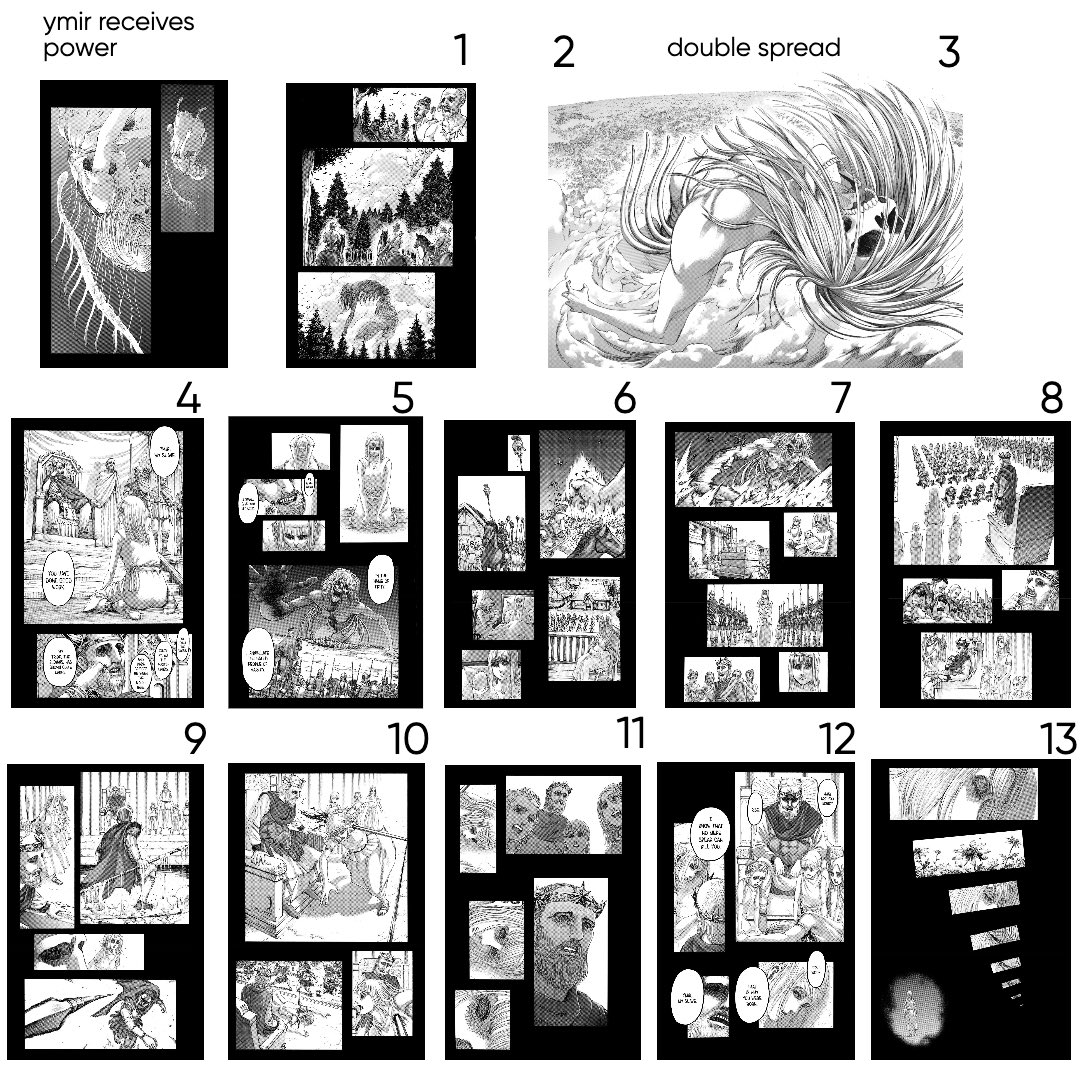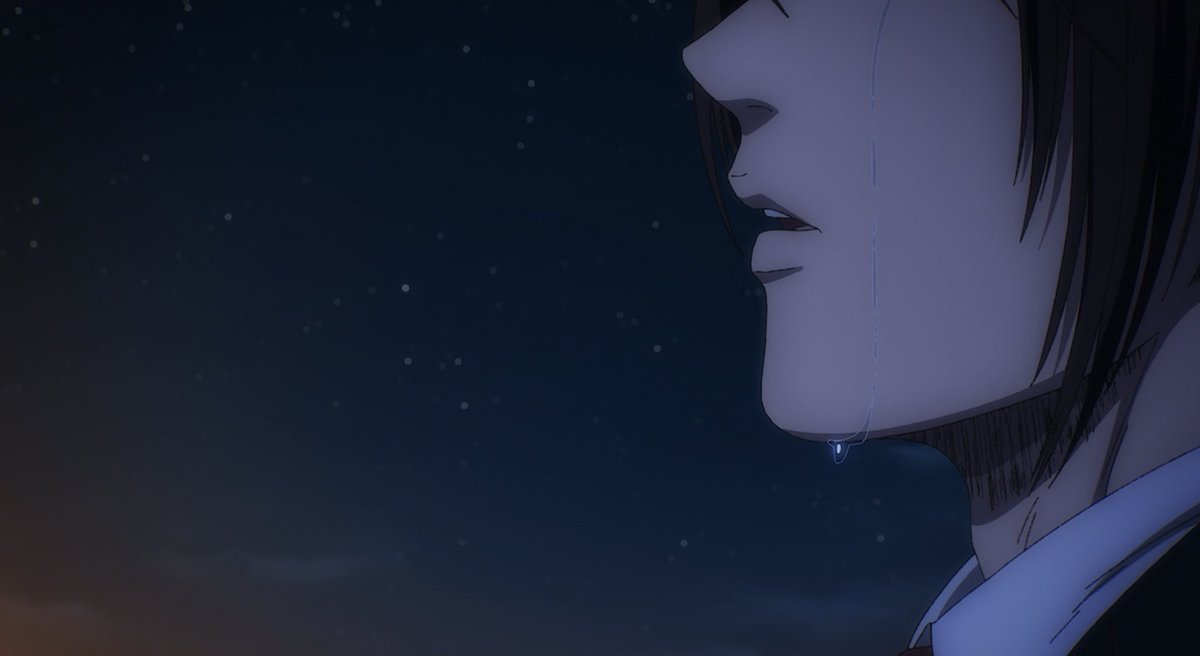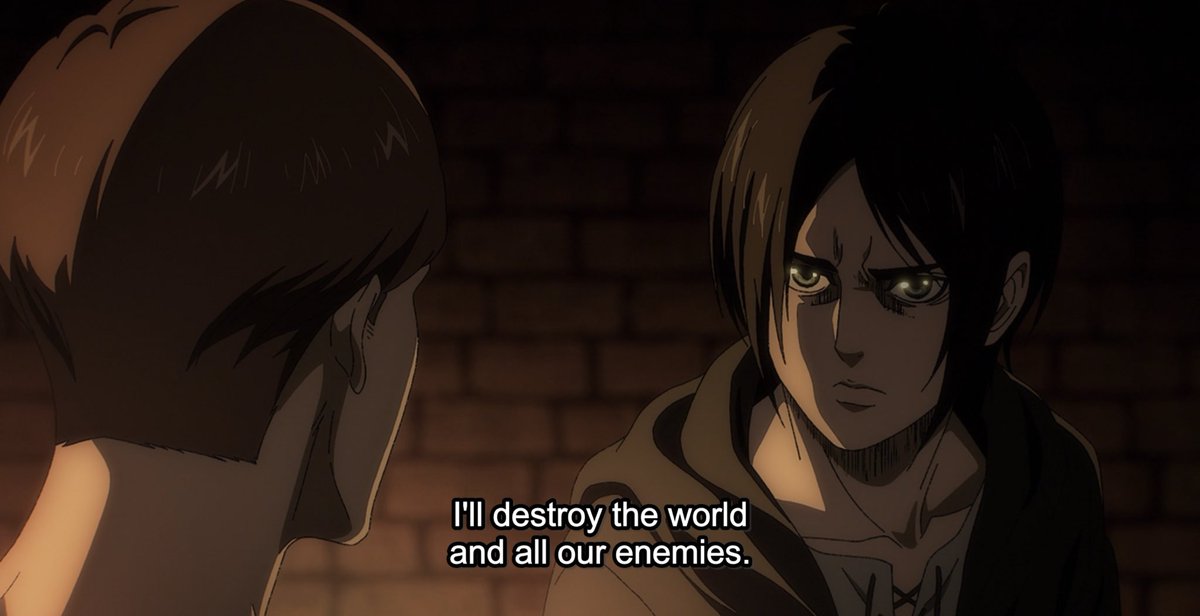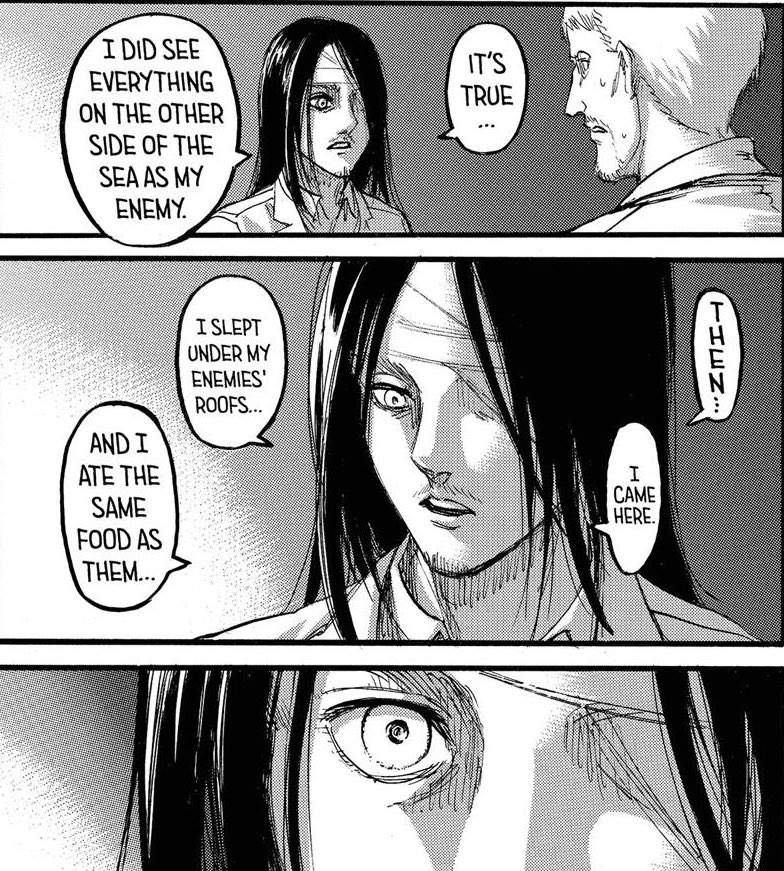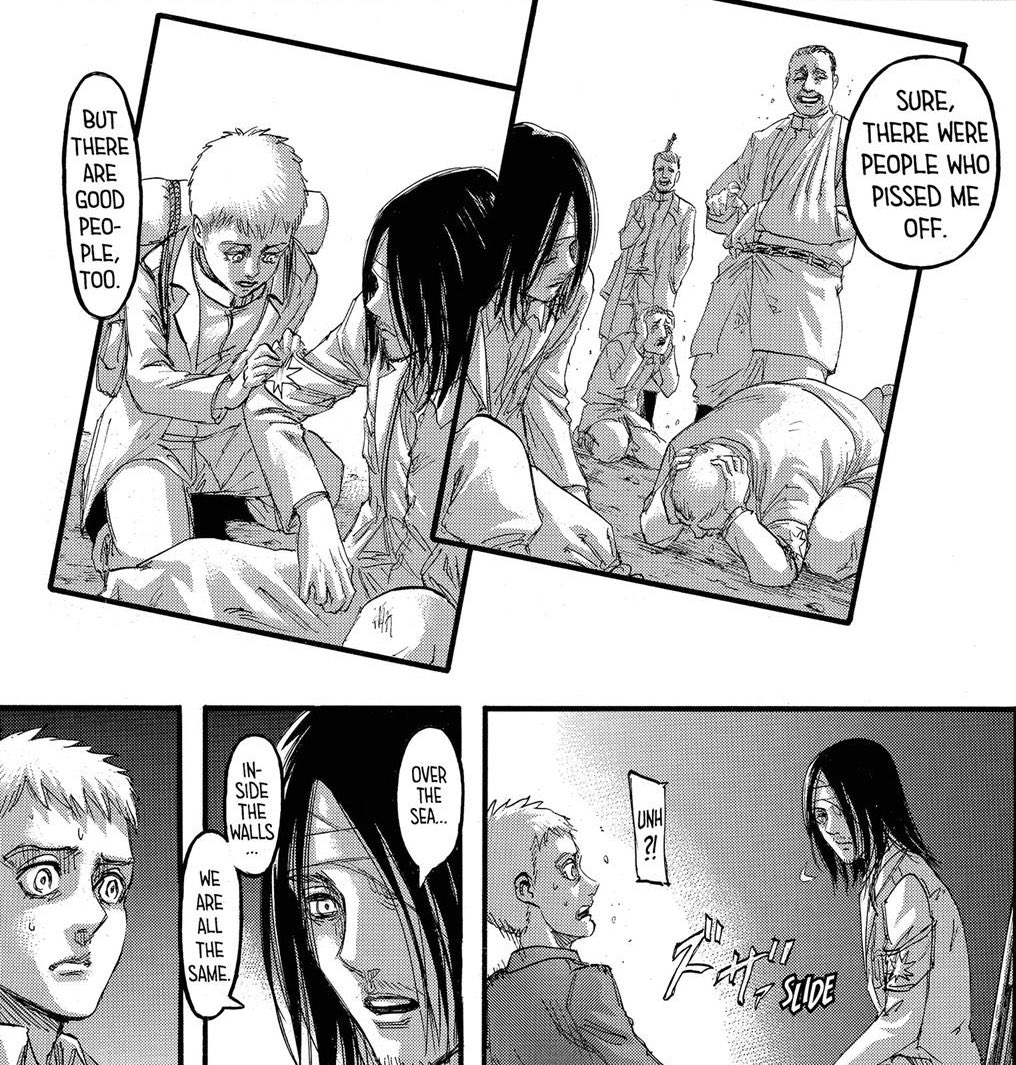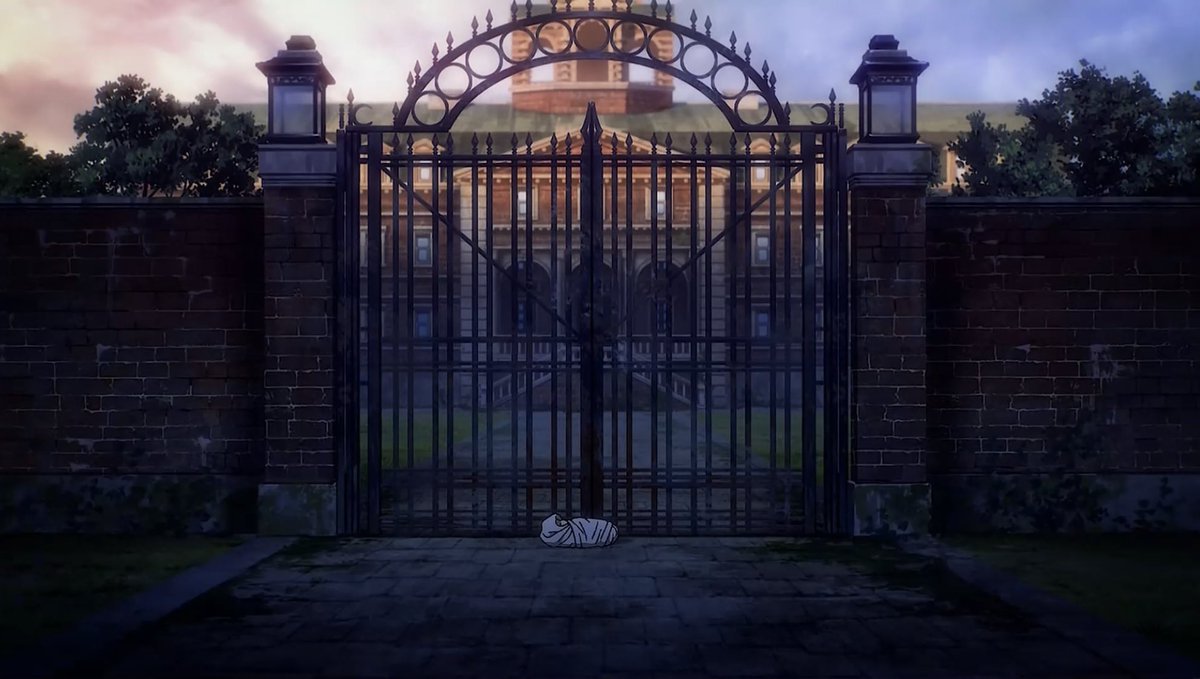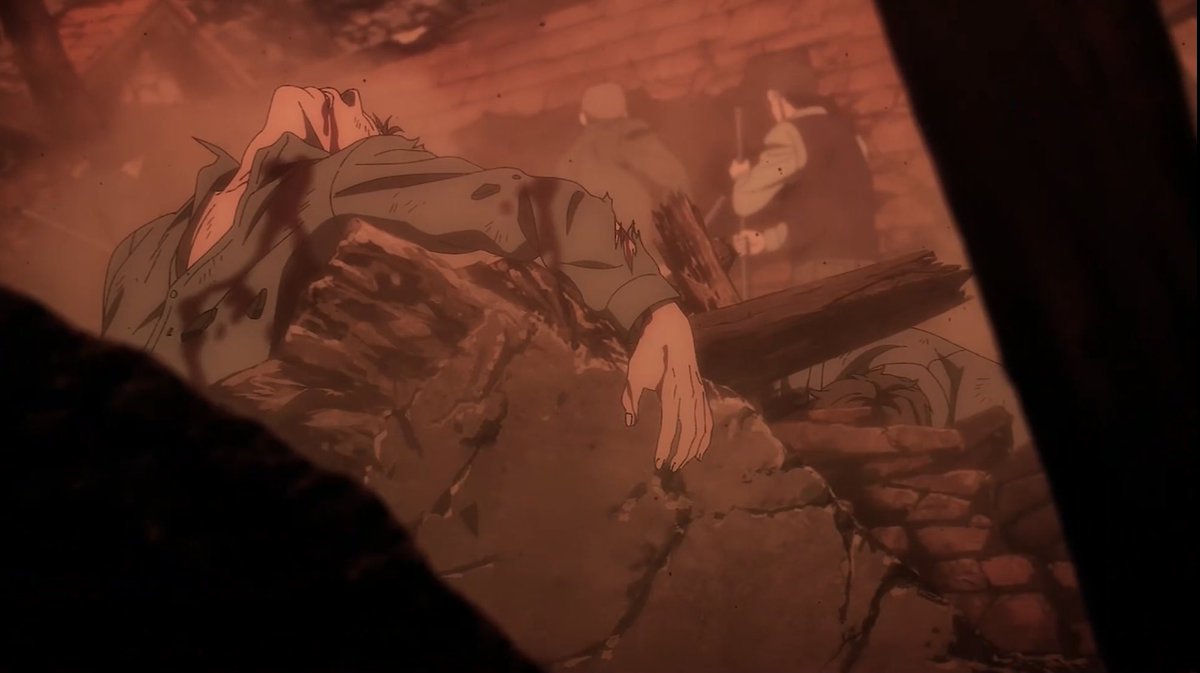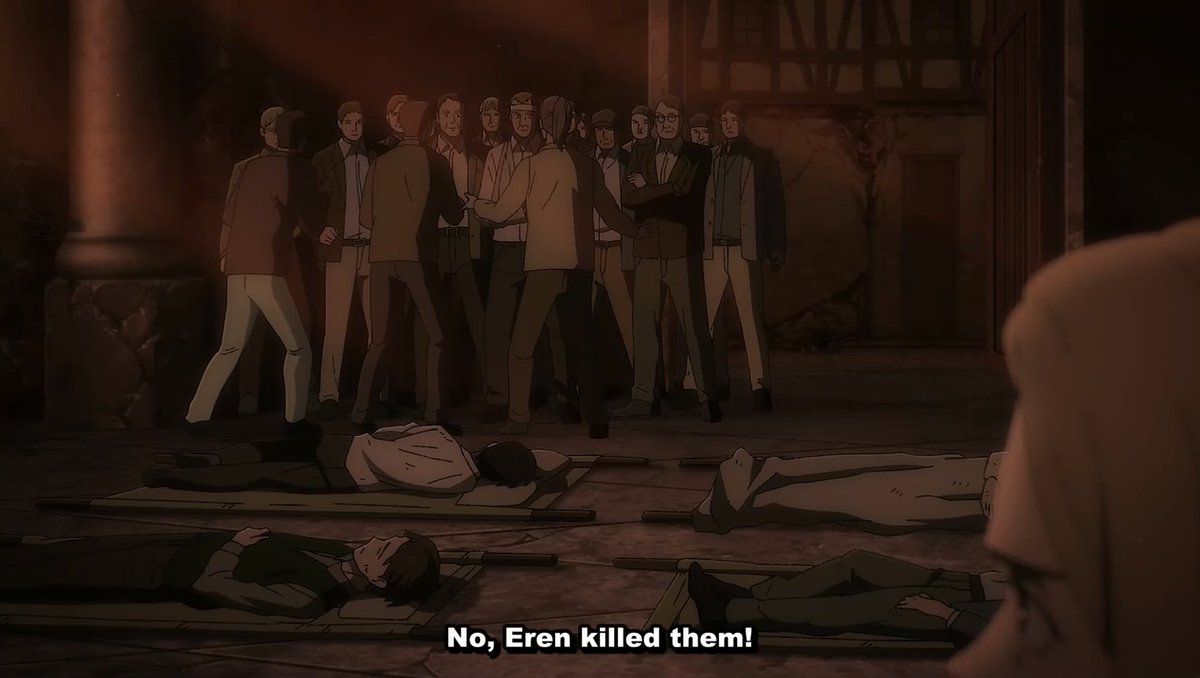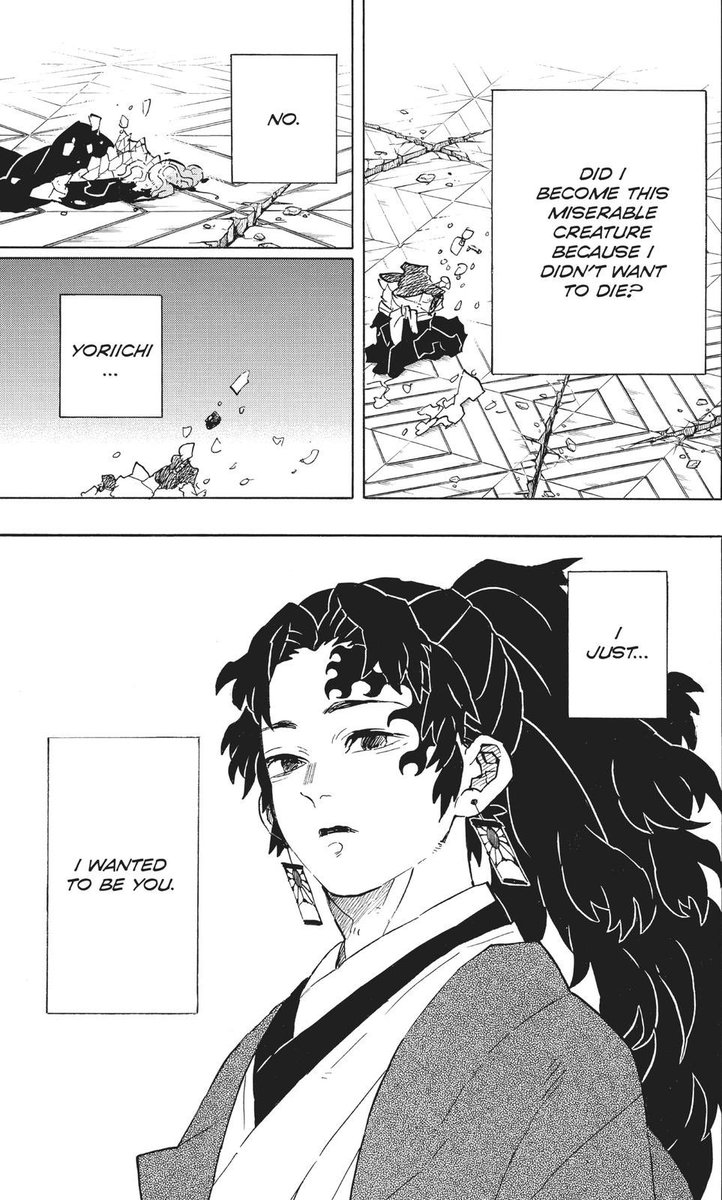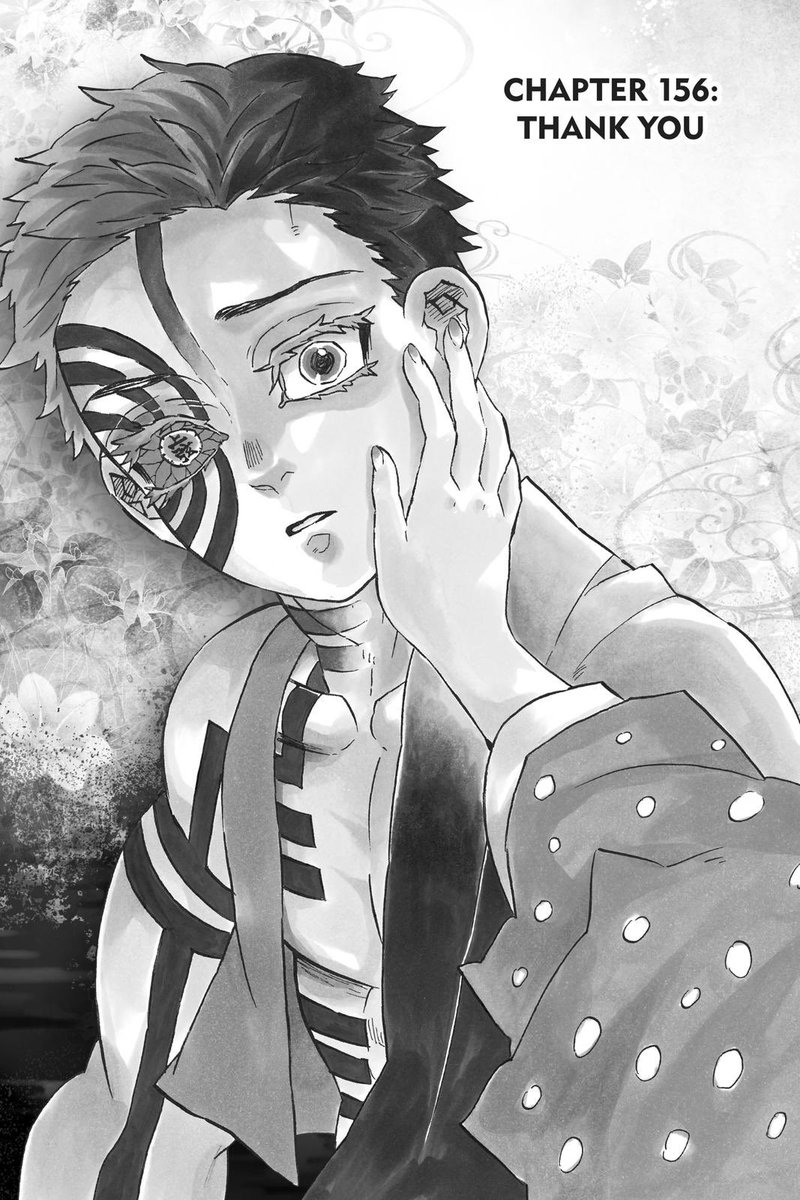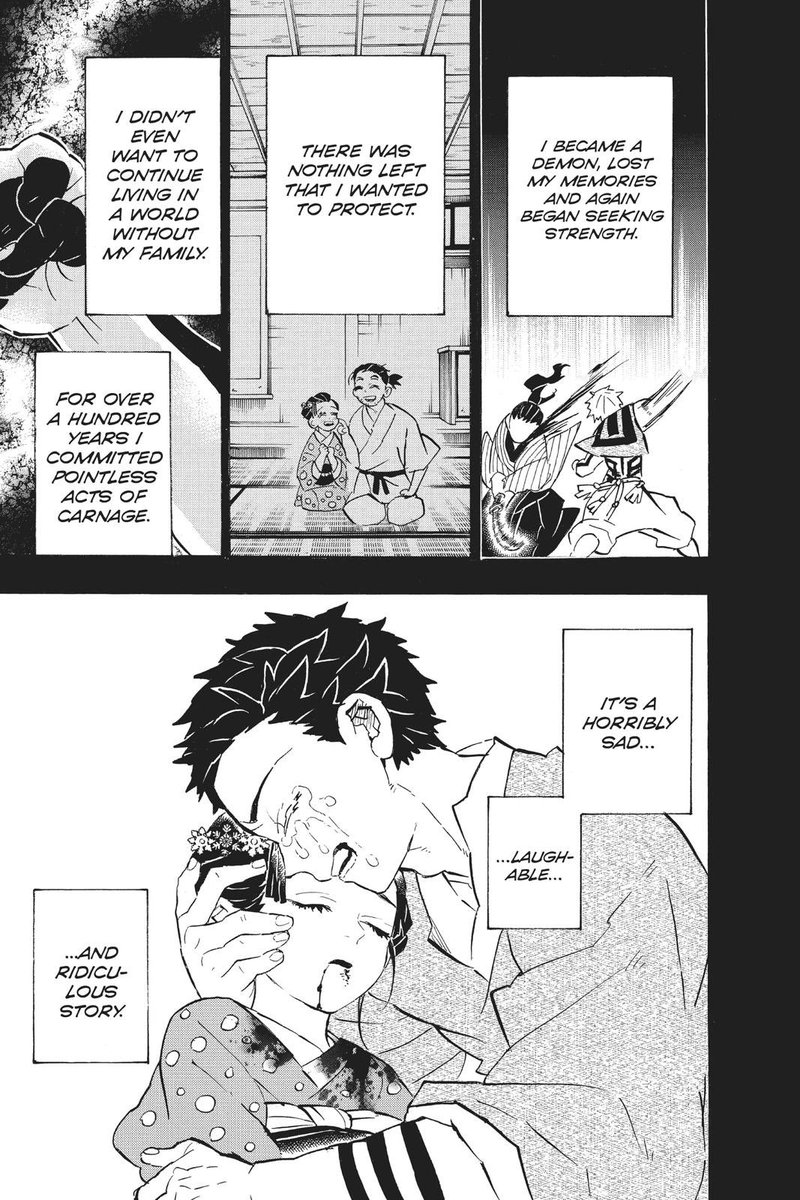the premise of this thread is that geto represents gojo’s humanity (the humanity within ‘god’) and their love becomes a curse which ultimately brings him down. jjk is a ‘story of love and curses’ with geto and gojo embodying this principal fully. + 



gojo is characterised as the ‘strongest’, strength is inseparable from his very identity but he’s at his best when he is alone. when kenjaku says this the word is caught in a bubble showing the fragility of this concept - gojo’s humanity (geto) means he cannot be truly alone. + 


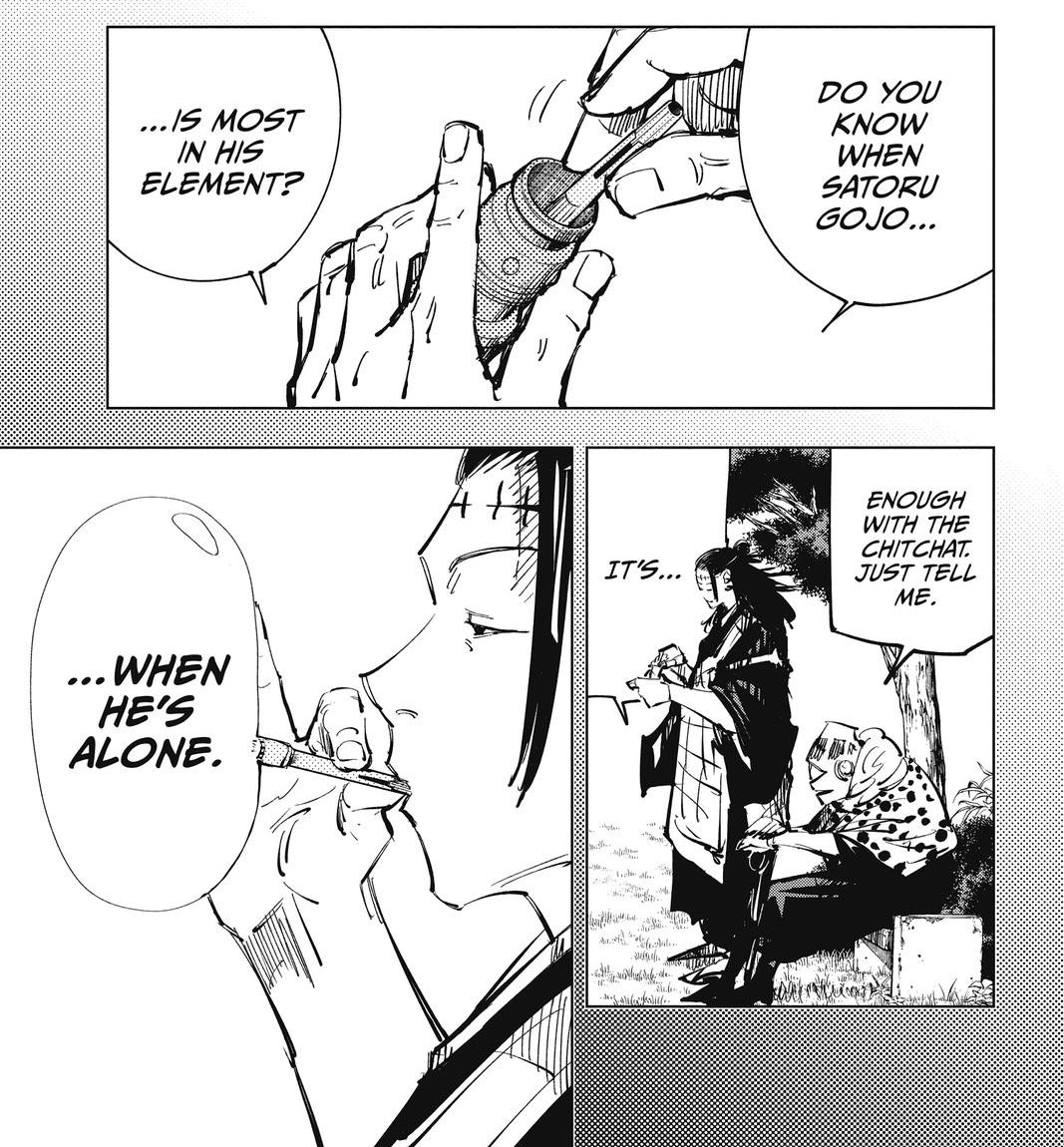


hence it’s just by seeing geto’s body that he is caught. ‘all possibilities were rejected by his six eyes’ which represent enlightenment and godhood but it is his HUMAN brain that succumbs to the memory of their bond together. geto is both love and a curse for gojo. + 



it’s even better when you look at limitless as the extension of gojo’s godhood (literally untouchable). he’s brought down by remembering a time when that very technique was still fallible - the time of his one and only true bond. + 

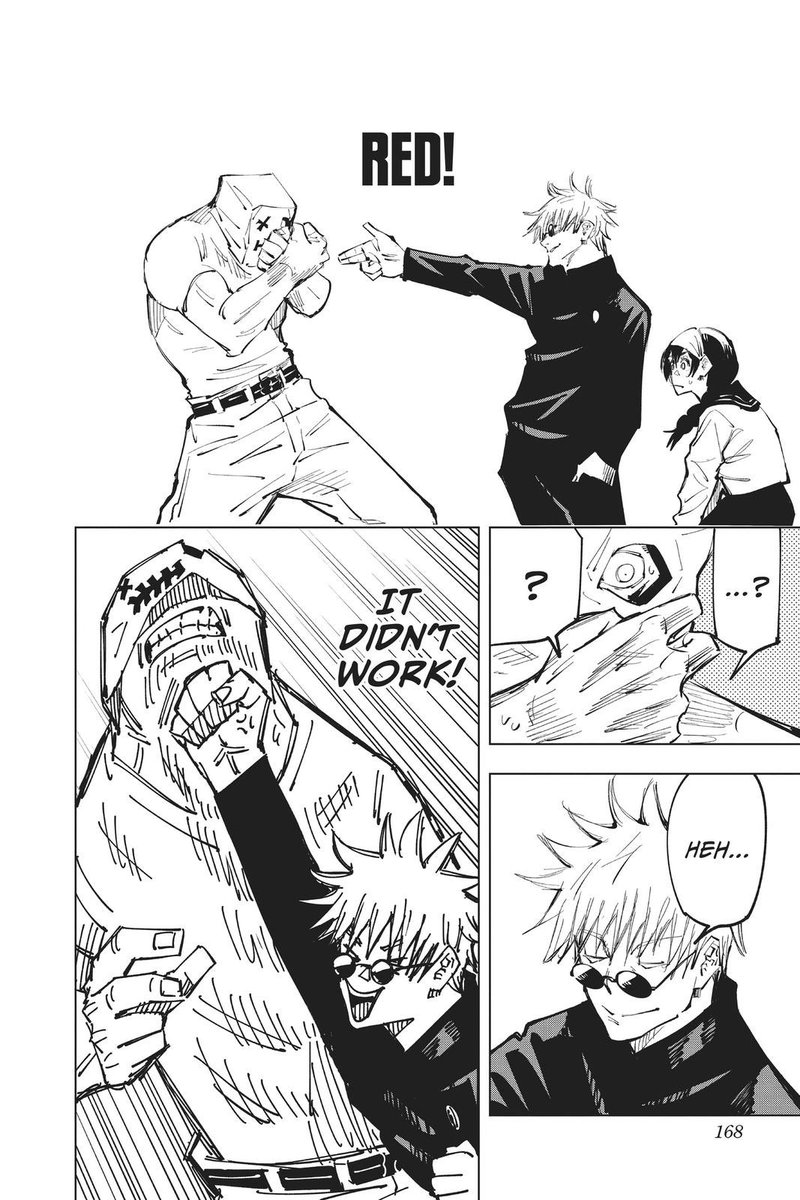
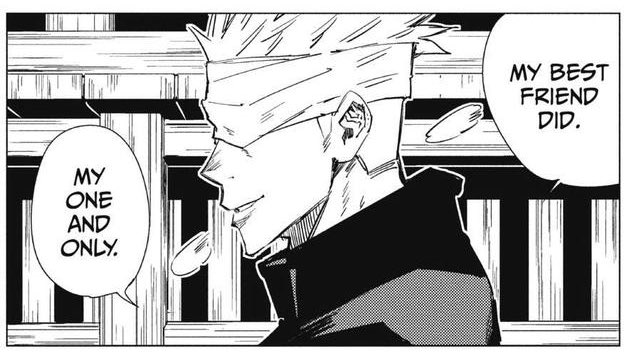
Gojo also represents an impossible ideal for geto. Geto could never be happy in this world and therefore warps himself into a ‘curse’ (through the very consumption of curses) in order to attain the type of power gojo had in birth. geto represents the effects of a warped society.+ 





his god-complex is pretty apparent. long ears in buddhism are a representation of enlightenment so geto wears earrings which lengthen then. these earrings are the very materialistic and ego driven statement the buddha rejects. geto liking being called ‘buddha’ also plays in. + 





the theme of love and curses is strengthened when you view the yuta/rika dynamic as the other side of the same coin. rika is a literal curse that yuta created through love but geto is the ‘evil’ curse user who becomes a metaphorical curse for gojo through their love. + 





gojo is strongest when he is alone but yuta gains his ‘godlike’ power through the curse rika. gojo is the ideal sukuna speaks of, strength within oneself whereas yuta represents the opposite and this is why kenjaku dismissed him as the one who could take over gojo. + 


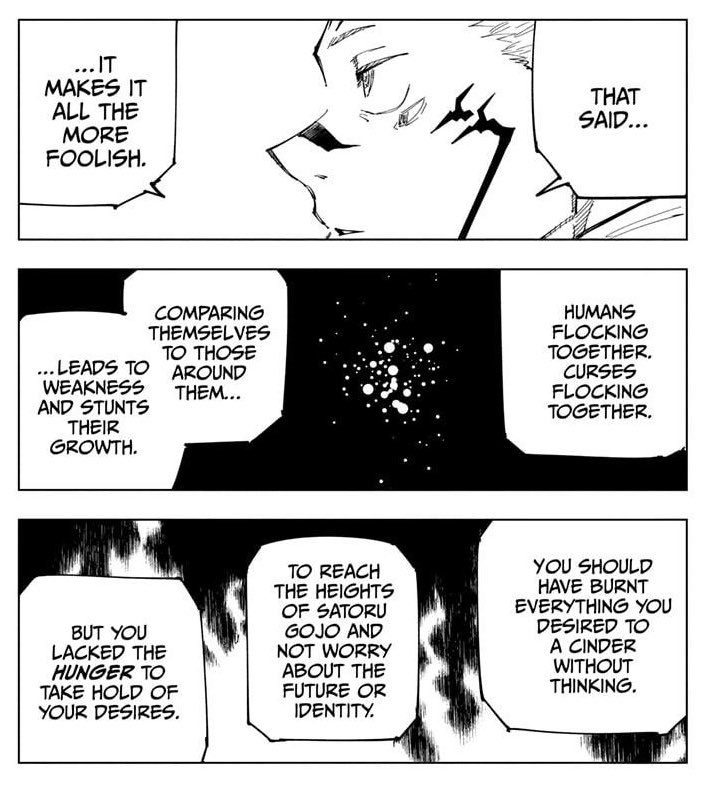


gege twists these buddhist ideas just like his commentary on traditional agency. the ‘strongest’ is a tool used to balance his world, unable to change anything himself. this is highlighted through geto becoming a curse through his own volition whereas yuta creates rika himself. + 



geto is the product of his society, the embodiment of the cycle of suffering (samsara) hence his use of the uzumaki SPIRAL as his maximum technique. it’s also a parallel to toji, another product of trauma, who wraps himself in a cyclical curse despite being ‘free’ from CE. + 



jujutsu kaisen is a story about love and curses, with gojo and geto showing how these two concepts can be intrinsically linked to each other. the tragedy of their bond is symbolic of the tragedy that resides within their world and it’s beautifully done.
thanks for reading 🤍
thanks for reading 🤍

oh and you can read my other thread on love and curses highlighting yuji as the mc if you are interested here.
https://twitter.com/cactuzzshash/status/1474823508458979328
• • •
Missing some Tweet in this thread? You can try to
force a refresh

